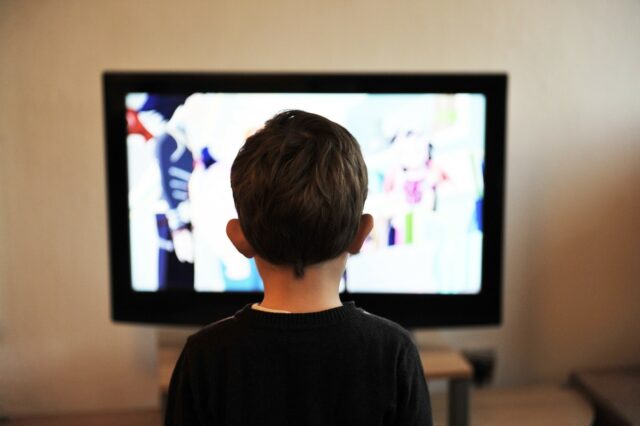Most of the things we do these days involve screens of some kind. From phones to tablets, laptops to TVs, gaming devices, to e-book readers. The list goes on.
However, while such gadgets can be useful for your child’s education, limiting screen time for children is crucial for their overall well-being and development. It can be difficult to achieve, but it’s essential to strike a balance and ensure that children are not excessively exposed to them.
Here are some reasons why limiting screen time is important:
- Physical health: Excessive screen time often leads to a sedentary lifestyle, which can contribute to various health issues such as obesity, poor posture, and even cardiovascular problems. Encouraging children to engage in physical activities instead of spending hours in front of screens promotes their physical fitness and overall health.
- Social skills: Spending too much time on screens can hinder the development of crucial social skills in children. Face-to-face interactions with peers and family members play a vital role in building communication skills, empathy, emotional intelligence, and the ability to form meaningful relationships.
- Cognitive development: While some educational content is available on screens, excessive exposure can negatively impact cognitive development in young minds. Limiting screen time allows children to explore other activities like reading books or engaging in imaginative play that stimulate creativity, problem-solving abilities, critical thinking skills, and enhance their attention span.
- Sleep quality: The blue light emitted by screens disrupts the production of melatonin—a hormone responsible for regulating sleep cycles—leading to difficulties falling asleep or maintaining good sleep quality. Establishing healthy bedtime routines without screens helps ensure that children get enough restorative sleep necessary for growth and optimal brain function.
- Emotional well-being: Constant exposure to screens can affect a child’s emotional well-being by increasing stress levels or causing anxiety due to cyberbullying or exposure to inappropriate content online. By setting limits on screen time usage and encouraging alternative activities like spending quality time with loved ones or pursuing hobbies they enjoy helps promote emotional balance.
- Academic performance: Excessive screen use has been linked with poorer academic performance among students due to distractions and reduced focus. By limiting screen time, children can allocate more time to homework, studying, and engaging in activities that enhance their learning abilities.
But of course, children love technology and they’re sure to want to spend time with the favourite devices. For that reason, it’s important that parents understand not only the reasons why screen time needs to be limited, but the strategies to do it.
Parental Strategies For Setting Effective Screen Time Limits
Setting screen time limits for children can be a challenging task, but with some effective parental strategies, it can become more manageable.
Here are some helpful tips:
- Establish clear rules: Clearly communicate the screen time rules to your children so they understand what is expected of them. Make sure they know the specific time limits and when screens are allowed or not allowed.
- Lead by example: Children often mimic their parents’ behavior, so it’s important to set a good example by limiting your own screen time and engaging in alternative activities.
- Create a schedule: Set specific times during the day when screens are allowed, such as after homework or chores are completed. This helps create structure and routine for your child.
- Use parental control tools: Take advantage of parental control features available on devices and apps to limit access to certain content or set daily usage limits.
- Encourage alternative activities: Provide a variety of engaging activities that don’t involve screens, such as reading books, playing board games, doing arts and crafts, or going outside for physical activity.
- Involve your child in decision-making: Allow your child to have some input in setting their own screen time limits within reasonable boundaries. This helps them feel more involved and responsible for managing their own usage.
- Monitor content quality: Pay attention to the type of content your child is consuming online and ensure it aligns with age-appropriate guidelines and values you want to instil in them.
- Use technology as a tool for learning: Encourage educational apps or programs that promote learning while using screens rather than solely focusing on entertainment-based activities.
- Set designated device-free zones/times: Establish areas in the house where screens are not allowed (e.g., bedrooms) or designate certain times during the day where all devices must be put away (e.g., mealtime).
- Communicate openly with your child: Talk about screen time expectations and the reasons behind them. Help them understand the importance of balance and moderation in their overall well-being.
Remember, it’s essential to be flexible and adapt these strategies based on your child’s age, maturity level, and individual needs.
Alternative Activities to Help Boost Your Child’s Cognitive Development
There are several activities that can be used to fill the void when your child isn’t using gadgets and indulging in screen time. While gadgets certainly have an educational side to them, some of the old-fashioned strategies still deserve a strong place in your child’s life.
Here are some alternative activities to screen time that can help foster cognitive growth in children:
- Reading: Encourage your child to read books, magazines, or even comics. Reading helps improve vocabulary, comprehension skills, and stimulates imagination.
- Puzzles and Brain Teasers: Engage your child with puzzles like jigsaw puzzles, crossword puzzles, Sudoku, or brain teasers. These activities promote problem-solving skills and critical thinking.
- Board Games: Play board games that require strategy and decision-making such as chess, Scrabble, Monopoly, or Settlers of Catan. These games enhance logical reasoning and social interaction.
- Arts and Crafts: Encourage creativity through drawing, painting, sculpting with clay or playdough, origami folding or DIY crafts. These activities develop fine motor skills while fostering imagination.
- Science Experiments: Conduct simple science experiments at home using household items to explore concepts like chemical reactions or physics principles. This promotes curiosity and scientific thinking.
- Outdoor Activities: Encourage outdoor playtime with sports like soccer or basketball to improve physical coordination while enhancing teamwork skills.
- Cooking/Baking Together: Involve your child in the kitchen by letting them measure ingredients or follow a recipe under supervision. This activity enhances math skills (measuring) as well as following instructions.
- Music Lessons: Enrol your child in music lessons for an instrument they are interested in playing (e.g., piano, guitar). Learning music improves memory retention and enhances cognitive abilities.
- Gardening/Nature Exploration: Engage children in gardening activities where they can learn about plants’ life cycles while nurturing responsibility for nature.
It’s important to note that setting boundaries around screen time should be done with open communication and understanding. Encouraging children to participate in the decision-making process regarding their screen usage fosters a sense of responsibility and helps them understand the importance of balance in their lives.
How Much Screen Time is Suitable?
It’s important to come to a suitable limit for your child according to their age and situation, but overall, there is some guidance available to give you an idea of how much screen time is enough for your child on a daily basis.
- Under 2 years old: It is advised to avoid screen time, except for video chatting with family and friends.
- 2 to 5 years old: Limit screen time to a maximum of one hour per day of high-quality programming. It’s important to ensure that the content is educational, age-appropriate, and interactive.
- 5 years old and above: Encourage a balanced approach by setting consistent limits on recreational screen time. The guidelines suggest that parents should prioritize activities such as physical exercise, socializing, reading, and other hobbies over excessive screen use.
Remember that these guidelines are meant as general recommendations and can be adjusted based on individual circumstances or specific needs of the child. It’s always beneficial to engage in open communication with your child about responsible technology use while considering their overall well-being.
Conclusion
In conclusion, it is evident that limiting screen time for children is crucial for their overall well-being and development. While technology has its benefits, excessive screen time can have detrimental effects on children’s physical health, mental well-being, and social skills. By setting clear boundaries and encouraging alternative activities such as outdoor play, reading, and creative pursuits, parents can help their children strike a healthy balance between the digital world and real-life experiences.
It is important to remember that every child is unique, so finding the right balance may require some trial and error. However, by prioritizing quality family time and fostering a supportive environment where children can explore various interests offline, we can ensure they grow up to be well-rounded individuals who are equipped with essential life skills in this increasingly digital age.
So, in this world of technology, let’s embrace the power of moderation when it comes to screen time for our little ones’ sake!




